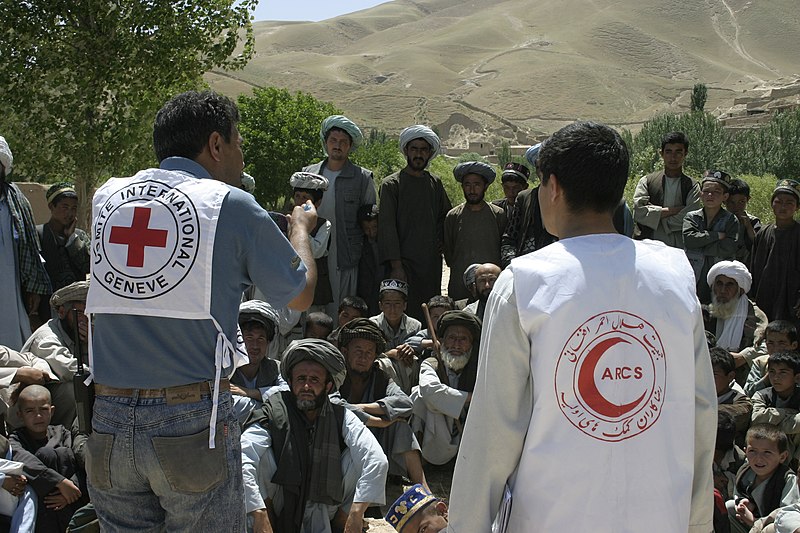The Taliban administration in Afghanistan has once again faced backlash following its most recent policies restricting women from participating in aid work and attending universities. Some aid organizations have resumed their operations in the country, including its female employees.
Several aid groups have resumed some operations in Afghanistan following the group’s decree last month that ordered aid groups to bar its female employees from returning to work. The International Rescue Committee, CARE, and Save the Children announced this week that they would be resuming some of their programs, mainly in health and nutrition, with their female workers also returning to work.
The groups received assurances from the insurgent group that women could work in certain aid programs, such as health, despite last month’s ban.
“Last week, the Ministry for Public Health offered assurances that female health staff and those working in office support roles can resume working. Based on this clarity, IRC has restarted health and nutrition services through our static and mobile health teams in four provinces,” said IRC spokesperson Nancy Dent.
Save the Children also said it received assurances from the Taliban authorities as it announced its resumption of health, nutrition, and some education programs allowing women to return to work. The group noted that its female employees were allowed to return but cautioned that more work needs to be done.
Many NGOs were prompted to suspend their operations as a result of the ban on female aid workers, saying that female workers were needed to expand their outreach across the country.
Meanwhile, the Qatari foreign minister said that despite the Taliban’s “disappointing” actions, Doha would continue engaging with the insurgent group in order to see progress. Foreign minister Sheikh Mohammed bin Abdulrahman Al-Thani said Doha was also consulting with other predominantly Muslim countries in order to establish a dialogue with Taliban officials in Afghanistan’s Kandahar province.
Al-Thani stressed the importance of persisting in engaging with the insurgent group despite the difficulty of the situation.
The Taliban has introduced increasingly restrictive policies against women since retaking control of Afghanistan in 2021. The international community has since called on the insurgent group to reverse the ban on women aid workers following December’s order.



 U.S.-India Trade Framework Signals Major Shift in Tariffs, Energy, and Supply Chains
U.S.-India Trade Framework Signals Major Shift in Tariffs, Energy, and Supply Chains  South Korea Assures U.S. on Trade Deal Commitments Amid Tariff Concerns
South Korea Assures U.S. on Trade Deal Commitments Amid Tariff Concerns  U.S. Announces Additional $6 Million in Humanitarian Aid to Cuba Amid Oil Sanctions and Fuel Shortages
U.S. Announces Additional $6 Million in Humanitarian Aid to Cuba Amid Oil Sanctions and Fuel Shortages  Trump Signs Executive Order Threatening 25% Tariffs on Countries Trading With Iran
Trump Signs Executive Order Threatening 25% Tariffs on Countries Trading With Iran  Iran–U.S. Nuclear Talks in Oman Face Major Hurdles Amid Rising Regional Tensions
Iran–U.S. Nuclear Talks in Oman Face Major Hurdles Amid Rising Regional Tensions  U.S. Lawmakers to Review Unredacted Jeffrey Epstein DOJ Files Starting Monday
U.S. Lawmakers to Review Unredacted Jeffrey Epstein DOJ Files Starting Monday  Trump’s Inflation Claims Clash With Voters’ Cost-of-Living Reality
Trump’s Inflation Claims Clash With Voters’ Cost-of-Living Reality  India–U.S. Interim Trade Pact Cuts Auto Tariffs but Leaves Tesla Out
India–U.S. Interim Trade Pact Cuts Auto Tariffs but Leaves Tesla Out  Trump Signs “America First Arms Transfer Strategy” to Prioritize U.S. Weapons Sales
Trump Signs “America First Arms Transfer Strategy” to Prioritize U.S. Weapons Sales  Trump Allows Commercial Fishing in Protected New England Waters
Trump Allows Commercial Fishing in Protected New England Waters  Nighttime Shelling Causes Serious Damage in Russia’s Belgorod Region Near Ukraine Border
Nighttime Shelling Causes Serious Damage in Russia’s Belgorod Region Near Ukraine Border  New York Legalizes Medical Aid in Dying for Terminally Ill Patients
New York Legalizes Medical Aid in Dying for Terminally Ill Patients  TrumpRx.gov Highlights GLP-1 Drug Discounts but Offers Limited Savings for Most Americans
TrumpRx.gov Highlights GLP-1 Drug Discounts but Offers Limited Savings for Most Americans  Federal Judge Restores Funding for Gateway Rail Tunnel Project
Federal Judge Restores Funding for Gateway Rail Tunnel Project  Missouri Judge Dismisses Lawsuit Challenging Starbucks’ Diversity and Inclusion Policies
Missouri Judge Dismisses Lawsuit Challenging Starbucks’ Diversity and Inclusion Policies  China Warns US Arms Sales to Taiwan Could Disrupt Trump’s Planned Visit
China Warns US Arms Sales to Taiwan Could Disrupt Trump’s Planned Visit  Japan Election 2026: Sanae Takaichi Poised for Landslide Win Despite Record Snowfall
Japan Election 2026: Sanae Takaichi Poised for Landslide Win Despite Record Snowfall 































